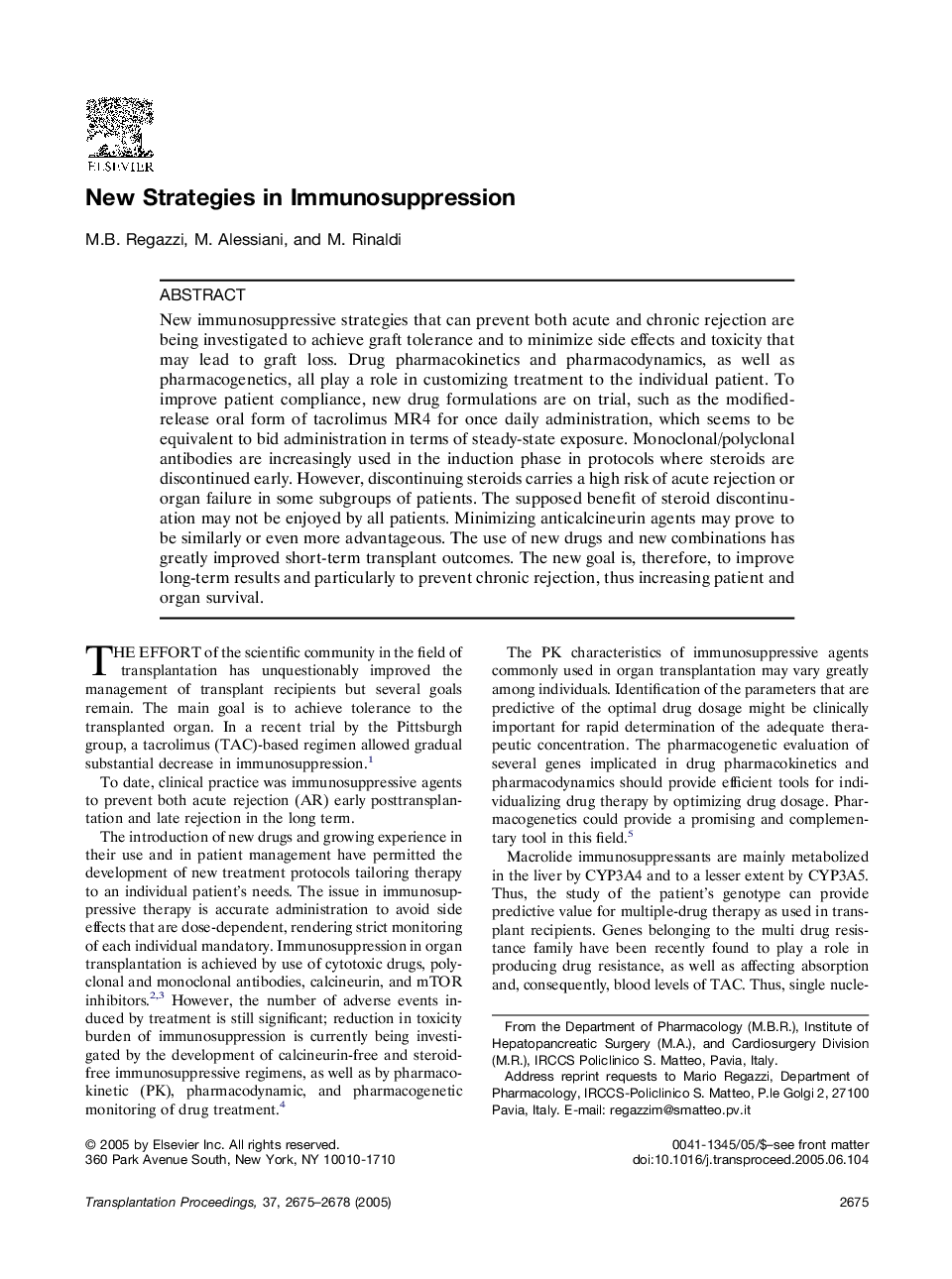| Article ID | Journal | Published Year | Pages | File Type |
|---|---|---|---|---|
| 4263687 | Transplantation Proceedings | 2005 | 4 Pages |
New immunosuppressive strategies that can prevent both acute and chronic rejection are being investigated to achieve graft tolerance and to minimize side effects and toxicity that may lead to graft loss. Drug pharmacokinetics and pharmacodynamics, as well as pharmacogenetics, all play a role in customizing treatment to the individual patient. To improve patient compliance, new drug formulations are on trial, such as the modified- release oral form of tacrolimus MR4 for once daily administration, which seems to be equivalent to bid administration in terms of steady-state exposure. Monoclonal/polyclonal antibodies are increasingly used in the induction phase in protocols where steroids are discontinued early. However, discontinuing steroids carries a high risk of acute rejection or organ failure in some subgroups of patients. The supposed benefit of steroid discontinuation may not be enjoyed by all patients. Minimizing anticalcineurin agents may prove to be similarly or even more advantageous. The use of new drugs and new combinations has greatly improved short-term transplant outcomes. The new goal is, therefore, to improve long-term results and particularly to prevent chronic rejection, thus increasing patient and organ survival.
